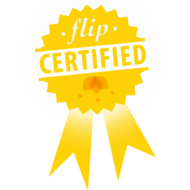One of the many benefits of teaching in a school with a wide range of ages is the ability to collaborate across many grade levels. Older students are often excited to engage with younger students, just as younger students often look up to their older peers. In order to capture this natural energy and opportunity for community building, I like to create alphabet books each year about a concept or theme, then share them in with younger students either live or through circulation in the library.
This year, I had to cover everyday life during the colonial era, but had much difficulty finding sources, activities and materials appropriately challenging for middle level students. A quick Google search will make it abundantly clear how much of what is out there is for primary students. I figured that I might as well embrace the over-arching trend and use the alphabet book as a final project for this particular section.
I provided the students with several sites about colonial life, most notably PBS's Colonial House materials and Colonial Williamsburg's history site. From there, students refreshed their previous knowledge of colonial occupations (see post about classified ads project), as well as vocabulary terms and concepts. I assigned each student a few letters and they designed a page for each letter, designating a word for each letter. I scattered a few sample alphabet books about countries of the world, musical instruments and science topics around the room just to demonstrate the basic format, then let them go wild.
Between all 48 students, we were able to generate three unique books for the library, each with creative ideas for the letters. Some students tackled more abstract themes, like agriculture and slavery, while others chose figures and events, like Jamestown, John Peter Zenger and the Salem Witch Trials.
I bound the books together with a simple plastic comb binding machine and shared it with the school library. Shortly after, our librarian asked for the electronic files of the pages so that we could attempt converting it into its own ebook! Who knows, maybe younger students will soon be able to check-out our alphabet book both at the library and electronically! If this works well, we might just have a lot a ebook publishing in our future!
Subscribe to:
Post Comments (Atom)










0 comments:
Post a Comment